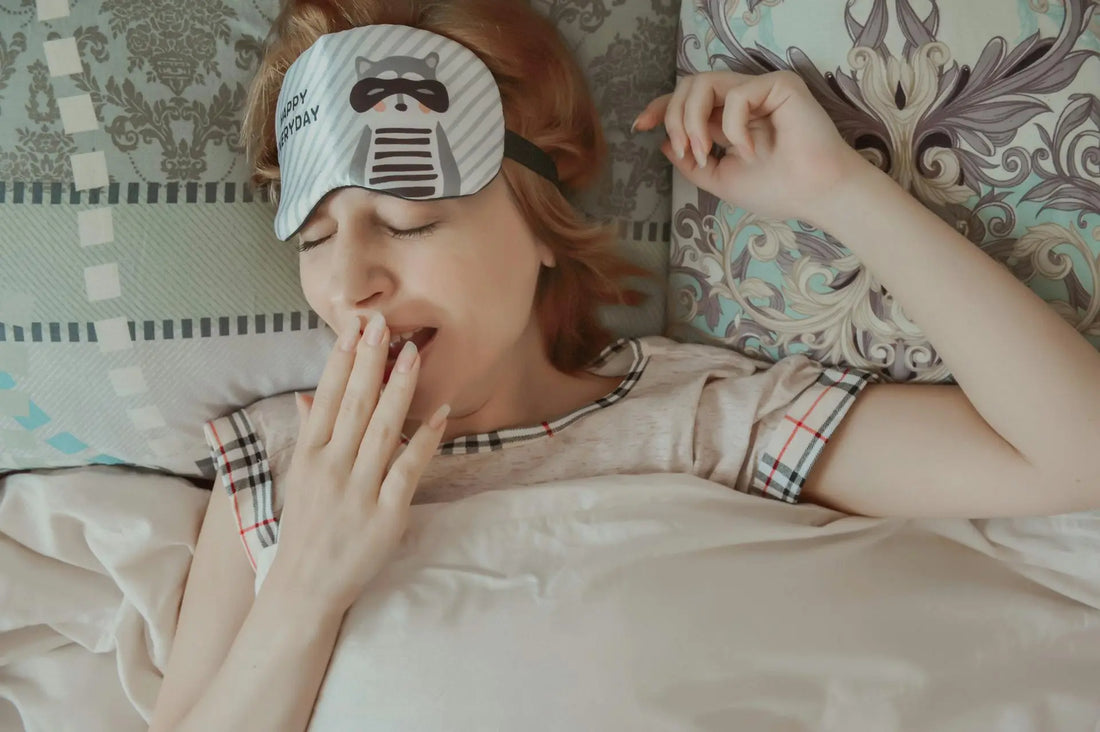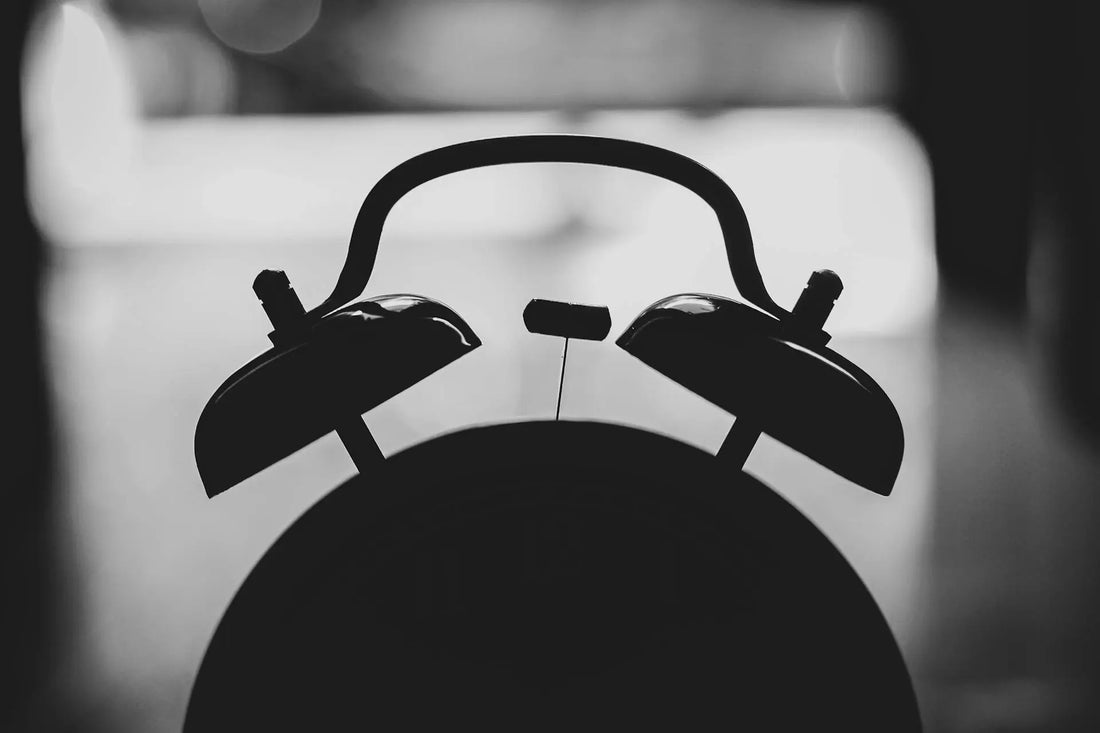
How to wake up properly?
Some people wake up after a restful night of sleep , ready to take on their day. However, many struggle to feel awake in the morning and, as a result, to get ready for work, school, or other obligations. Sleep inertia , which occurs the moment you wake up, is one reason mornings can be difficult. However, small lifestyle changes can improve morning alertness and reduce the negative effects of sleep inertia . We explore strategies to help you wake up more easily and stay alert throughout the morning.
Maintain regular sleep schedules
Sleep experts advise going to bed and waking up at the same time every day , including weekends . A consistent sleep schedule helps regulate the body's internal clock, influencing the sleep-wake cycle, a set of biological processes that make us sleepy at night and awake in the morning .
Avoid the “Snooze” button
Waking up early on the first alarm can make waking up easier . While it’s tempting to hit the snooze button to get a few minutes of sleep, that extra sleep will be fragmented and less restful. In fact, fragmented sleep is linked to increased stress and other negative effects. Instead of scheduling time for morning naps, it may be more helpful to set your alarm a little later to maximize the quality and quantity of sleep. If you have trouble getting up on the first alarm, place your alarm far away from your bed to force yourself to get up .
Discover our alarm clocks here

Get enough sleep
One reason people hit the snooze button is because they wake up tired and need more sleep . However, sleeping a few extra minutes in the morning isn’t an effective solution to chronic sleep deprivation. Everyone has different sleep needs, but most adults need at least seven hours of sleep per night. Yet, more than 35% of people get less than seven hours of sleep per night . If you’re having trouble waking up in the morning, consider spending more time sleeping.
Let in natural light
Exposure to daylight shuts down the production of melatonin, a hormone that helps regulate the sleep-wake cycle by promoting sleep. Sleeping with the curtains open or partially open can allow sunlight to wake you up naturally . If you live in an area with less daylight or your schedule requires you to wake up in the dark, consider using a wake-up light . These lights come on gradually, mimicking natural sunlight . Additionally, exposure to light during the day can promote a healthy sleep-wake cycle. One study of college students found that blue light in the classroom increased alertness and improved mood during morning classes. Another study of office workers exposed to light at work found that participants were in a better mood and slept better at night.
Discover our collection of dawn simulator alarm clocks

Listen to energizing music
Studies show that the sound of your alarm clock can influence how sleepy or sleep inertia you feel when you wake up. While the evidence isn’t definitive, melodic alarms appear to reduce sleep inertia compared to neutral alarms like beeps. Melodic music, with its predictable patterns, is easy to hum or sing along to and may be more stimulating when you wake up. Experiment with different sounds or songs to find the one that best helps you wake up.
Take a shower
For many, a shower is part of the morning routine . Water temperature can affect alertness. One randomized study looked at the effect of hot and cold showers on morning alertness. Participants started with a shower at their chosen temperature, then finished with 30 to 90 seconds of cold water. Exposure to cold water increases energy levels, with some comparing the effect to that of caffeine.
Eat a nutritious breakfast
Breakfast is crucial for getting the nutrients and energy you need . Those who eat breakfast regularly report improved alertness, mood, and sleep quality. Skipping breakfast can disrupt the sleep-wake cycle . A balanced breakfast should include protein, fruits or vegetables, whole grains, and low-fat dairy.
Exercise regularly
Frequent exercise improves sleep quality, helping you fall asleep faster and stay asleep longer, making it easier to wake up. Experts recommend at least 30 minutes of exercise most days. However, avoid intense exercise two to three hours before bedtime, as it can delay falling asleep. Gentle exercise, such as yoga or stretching, can help you relax before bed.

Practice good sleep hygiene
Waking up more easily is facilitated by an adequate night of sleep. Sleep hygiene encompasses healthy practices that support quality sleep. There are many lifestyle behaviors that promote good sleep hygiene.
Adopt good sleep hygiene
A good night's sleep makes it easier to wake up. Sleep hygiene refers to healthy habits that promote quality sleep. Here are several lifestyle practices to improve your sleep hygiene.
Follow a nightly routine
A relaxing evening routine can help you unwind. Reading a book, taking a bath, listening to music, doing yoga, and meditating are all strategies to calm the mind before bed.
Cultivate healthy habits
Daytime activities also influence nighttime sleep. Regular exercise and daily exposure to daylight are important for your overall health and sleep quality.
Optimize your room
The sleeping environment should be dark, quiet and cool. Use a fan for white noise and install blackout curtains to block out unwanted light.
Limit screen time
Smartphone, tablet and computer screens emit blue light that can disrupt your sleep-wake cycle and affect the quality of your sleep. It is advisable to remove these devices from the bedroom to sleep better.
Avoid certain drinks and foods
Drinking caffeine late in the day can keep you awake, and alcohol decreases the depth and duration of sleep. Avoid spicy and fatty foods before bed because they can cause heartburn and make it difficult to fall asleep.
Get up if you can't sleep
Use your bed for sleep and intimacy. If you can't fall asleep after 20 minutes, do a quiet, relaxing activity in another room. Return to bed when you feel sleepy.
When to talk to your doctor
Sometimes, lifestyle changes aren’t enough to improve your morning alertness. Regularly waking up feeling groggy and unrefreshed can be a sign of an underlying sleep disorder. Other symptoms of sleep disorders include:
- Difficulty falling asleep or staying asleep
- Excessive snoring or shortness of breath during sleep
- Daytime sleepiness and need for frequent naps
- Tingling or crawling sensations in the limbs
- Frequent shaking during sleep.

Keep track of your sleep and wake experiences, as well as your energy levels during the day, and report them to your doctor. A doctor can determine if you have a sleep disorder and recommend treatment or refer you for further evaluation.






